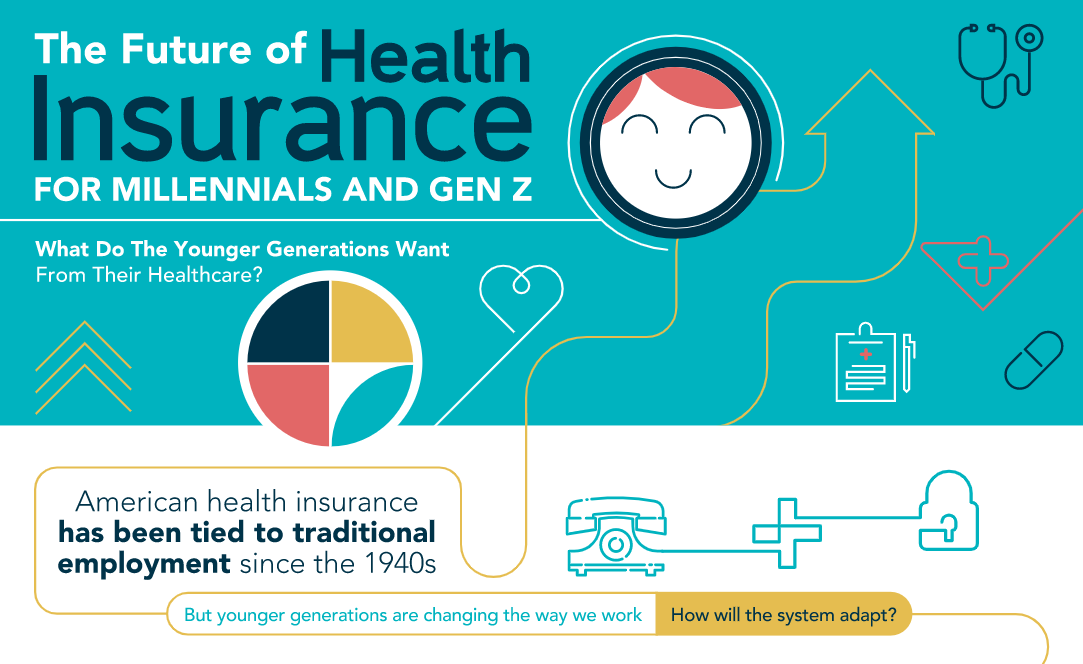Every corner of the internet seems overfilled with articles about Millenials, like what they want, and how they tick. However, Millenials aren’t the youngest generation in your market anymore. In fact, younger people that you assume are millennials might not be, however, much of the younger generation value similar things in the workplace. The new generation on the block has been coined “Gen Z” or “Generation Z” for now, and they are expected to make up about 36% of workers in 2020. This ultimately will shape the healthcare insurance market, so it’s a good idea to look at the wants and needs of the younger working generation.
As QZ points out in their article on Gen Z, the internet is filled with generalizations about generations that many times aren’t helpful. For brokers, it is clear there is a rising section of young workers that have different thoughts on their benefits, how they interact with the market, and how they want to interact. Here are just a few things Gen Z’ers often care about, and how to best meet their needs when advising this younger generation about benefits.

The way many people engage with their health insurance coverage has changed a lot in the last few years, especially as more people who never had it before enroll in plans. One group that seems to be more engaged than ever with health insurance is young adults, and the way they navigate the ins and outs of coverage seems to differ greatly from the preferences of previous generations.
While baby boomers are most likely to be extremely or very satisfied with their coverage, more than half of Millennials (54 percent) fall into this same category, just ahead of those born in Generation X, according to a new survey from the Employee Benefit Research Institute. In addition, some two-thirds of millennials also say they’re very or extremely satisfied with the quality of care they receive through those plans.
Interestingly, these young adults were far happier with the out-of-pocket costs they face than older generations, with 58 percent expressing high levels of satisfaction when it comes to prescription drug costs. Only half of boomers and Gen Xers felt the same way. Likewise, 48 percent of young adults say they’re similarly happy with the costs for other medical services, while only 40 percent in older generations felt the same way.
On the other hand, only 69 percent of Millennials and Gen Xers were at least very satisfied with their choice of doctors, compared with 74 percent of boomers, the data showed. Similarly, 68 percent of boomers say they like how easy it is to book a doctor’s appointment, versus 63 percent of millennials and 62 percent of those in Gen X. The good news, though, is that Millennials tend to be far more proactive about examining their health insurance options and choosing a plan that works for them.

Financial and Benefits Security: Gen Z grew up in the Great Recession and its aftermath. Most have seen their parents laid off and other family members struggle in the healthcare crisis. This can lead many Gen Z’ers to be skeptical and cynical of companies and concerned with finding quality health insurance. In fact, according to Concordia University’s Gen Z infographic, 70% of Gen Z says health insurance is their top “must-have” when looking for a job. Approaching Gen Z employees with transparency and a direct explanation of the benefits can go a long way, and additional educational resources and handouts will help keep them informed and engaged year-around. 35 percent of Millennials will now turn down job offers they receive if the health insurance and other insurance-related benefits associated with the position does not meet their standards, according to a recent survey from Anthem. Among adults overall, that number was just 27 percent.
Mental Health: After getting a job and being successful, Gen Z’s biggest concern is mental health. Mental health coverage through health insurance plans is important to them. If you are an ancillary benefits broker and can’t offer them health insurance, you can still show you are committed to their overall health by giving them options for wellness programs that promote mental and health wellness.

Technology: Gen Z is the first generation to have had access to modern technology their whole lives. On average they use 5 different screens every day and spend 10 hours a day on electronic devices. A tech centered approach to benefits education and engagement is key. Give Gen Z options to access information about their benefits across screens, including texts, email, and video along with web content. Keep communication direct, transparent and to the point. Millennials have grown up both with and without technology and are savvy with it’s ease of use and convenience, they still value true communication face-to-face.
Face-to-Face Communication: Concordia University also highlights that Gen Z places a lot of weight on face-to-face interaction, especially in the workplace. 40% of Gen Z wants daily interaction with their supervisor – and this can mean a lot for brokers during Open Enrollment. While you can’t be on-site for your clients every day, maintaining a strong presence at open enrollment, and creating time to answer employee questions one-on-one when needed can help Gen Z employees be engaged with their benefits, and contribute to a strong open enrollment. A lot of the time, misinformation is easier to be dealt with face-to-face, as pricing assumptions can keep a potential insurable individual from continuing the communication through tech. The average Gen Z’er overestimates the cost of life insurance alone but more than 5x the actual amount. These things are really commonplace and misconceptions such as this one are easily cleared up with face-to-face communication.
Just like Millenials, Baby Boomers Gen Z and every other generation, the terms are just generalizations. Every person who falls under the blanket of each generation is different and will have different wants, desires, and needs.
Group Plans Inc
(623)-889-7600
Source: Soltice Benefits

